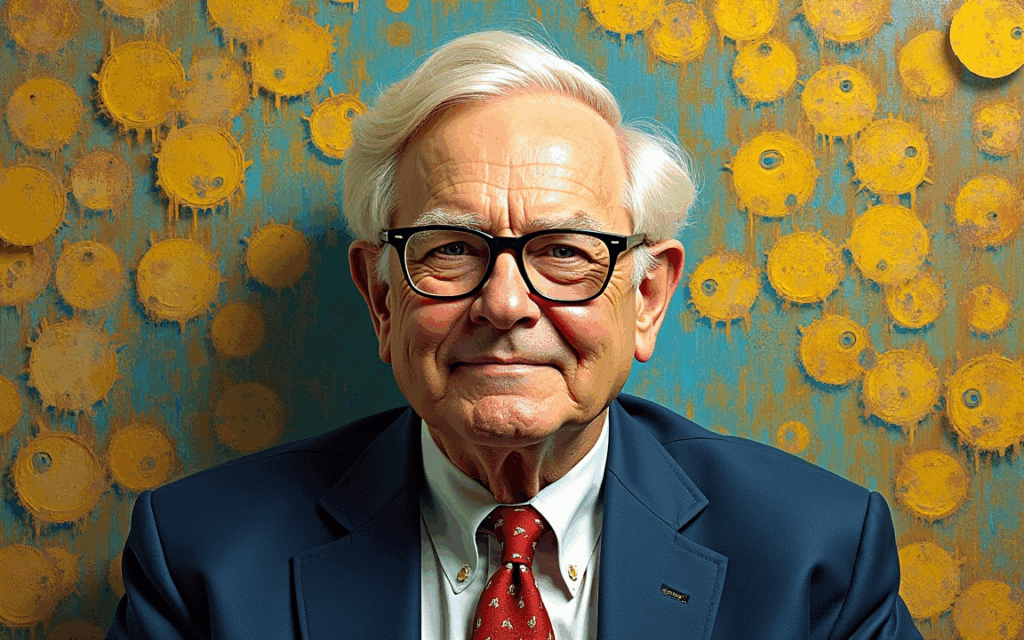Warren Buffett’s Berkshire Hathaway reported a 4% year-on-year decline in second-quarter operating profit on Saturday, underscoring the toll of falling insurance premiums and broader economic uncertainty.
Operating income dropped to $11.16 billion in the three months ended June, from $11.6 billion in the same period a year ago.
The Omaha-based conglomerate also disclosed a $3.8 billion writedown on its equity investment in Kraft Heinz, the struggling packaged-food maker known for brands like Heinz ketchup and Kraft macaroni and cheese.
The impairment contributed to a sharp 59% drop in net income, which fell to $12.37 billion from $30.35 billion a year earlier.
Though businesses such as railroads, energy, manufacturing, and retailing posted stronger year-on-year profits, the insurance underwriting segment—the cornerstone of Buffett’s empire—saw premiums soften, dragging overall earnings lower.
Tariff uncertainty and succession weigh on outlook
“The pace of changes in these events, including tensions from developing international trade policies and tariffs, accelerated through the first six months of 2025,” Berkshire said in its earnings report.
“Considerable uncertainty remains as to the ultimate outcome of these events.”
“It is reasonably possible there could be adverse consequences on most, if not all, of our operating businesses, as well as on our investments in equity securities, which could significantly affect our future results,” the company said.
Berkshire’s massive cash pile—long a subject of fascination for investors—slipped modestly to $344.1 billion, down from $347 billion at the end of March.
Notably, the conglomerate did not repurchase any of its own shares in the first half of the year, despite a more than 10% drop in Berkshire’s stock price from its all-time high.
The second quarter also marked a period of leadership transition.
Buffett, 94, announced in May that he will step down as CEO at the end of 2025, with Vice Chairman Greg Abel slated to succeed him.
Buffett will remain chairman of the board.
Kraft Heinz faces valuation hit as spinoff looms
The Kraft Heinz writedown highlights growing uncertainty around the company’s future.
Nearly a decade after Buffett and private-equity firm 3G Capital orchestrated the merger of Kraft and Heinz in 2015, shares of the combined entity have plummeted almost 70%.
During the same period, the S&P 500 has more than tripled.
Last month, The Wall Street Journal reported that Kraft Heinz was exploring a spinoff of a major portion of its grocery portfolio, potentially creating a new company worth as much as $20 billion.
The move, according to analysts, could help streamline operations but may also accelerate Berkshire’s exit from the investment.
Berkshire currently holds a 27% stake in Kraft Heinz but gave up its board seats in May.
TD Cowen analyst Robert Moskow noted that the planned restructuring “should slim down” Kraft Heinz’s portfolio but also warned of a potential stock overhang if Berkshire begins selling its shares.
Buffett continues to pare down financial holdings
While Berkshire remains famously long-term in its investing approach, Buffett has quietly trimmed positions across his portfolio this year, particularly in the financial sector.
Notable among them is the gradual reduction in Bank of America shares—one of Berkshire’s largest holdings since 2011.
The sales have drawn attention among analysts and investors, given Buffett’s oft-quoted philosophy that his “favourite holding period is forever.”
The recent pattern, however, suggests a cautious repositioning in light of shifting market conditions and Buffett’s advancing age.
The post Berkshire Hathaway posts 4% dip in Q2 operating profit, writes down Kraft Heinz stake appeared first on Invezz



